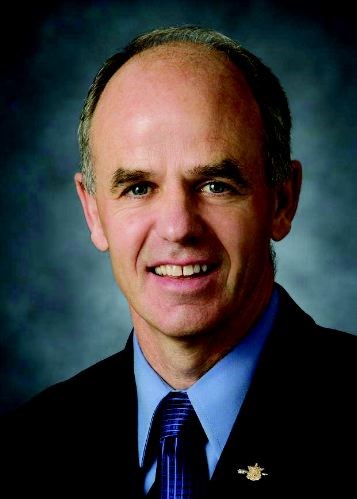Cariboo North independent MLA Bob Simpson is continuing to raise concerns over the Pacific Carbon Trust (PCT).
Simspon is saying the PCT is not only taking away money from schools, hospitals and universities but using it to buy carbon offsets from companies for greenhouse gas reduction projects already subsidized by the federal government.
The most-local example is the $122 million Canfor Pulp received from Ottawa's green transformation fund, to help pay for four projects, the largest of which is a $100-million upgrade to the recovery boiler at its Northwood Pulp mill in Prince George.
A year ago, Canfor Pulp and PCT signed a letter of intent that will see the Trust purchase carbon offsets based on a reduction of 80,000 tonnes of greenhouse gases (GHGs) over the initial three-years, once the projects are completed. The PCT will then sell the offsets to others for $25 per tonne.
Simpson doesn't begrudge Canfor Pulp for reaching the deal.
"This is not a slam on Canfor," Simpson said Wednesday. "They've got an obligation to their shareholders to get some of this cost of capital investments down.
"This is a fundamental question about the structure of this thing called Pacific Carbon Trust."
Simpson maintains the arrangement falls short of the standards posted on the PCT website, namely that it buy "high quality" offsets that "ensure real climate change solutions."
"For the government to legitimize taking money from public sector operating budgets to achieve 'carbon neutrality,' the PCT must prove, beyond doubt, that their purchase of offsets is incremental to 'business as usual,'" Simpson said.
"That is, the Trust's money is essential to achieve the GHG reduction; that is, without the PCT's money, the GHG reduction would not have been realized."
PCT managing director David Moffat asserts that Canfor Pulp's project passes the test.
"Clearly, in Canfor Pulp's case, they needed both the revenue from the offsets and the green transformation funding to make these major changes to their operation that are driving the GHG reductions," Moffat said.
Canfor Pulp spokesman David Scott said the four projects cost $158.5 million - significantly more than the $120 million the company received from the federal government through the green transformation fund, established in 2009 to counter a U.S. subsidy program.
"We spent much, much more than we were allotted to under the program," Scott said. "Approximately $36.5 million."
Regardless, Simpson said public sector bodies like school districts, health authorities and universities should not be paying into the PCT, saying they already face tight budgets and the money would be better spent on their core services or reducing emissions in their own facilities.
"Why is it only the public sector that's capped and taxed and the private sector, which is the largest emitter of greenhouse gases, has unfettered ability to pour additional greenhouse gases into the atmosphere?" Simpson asked.
He said current system should be scrapped in favour of a tax on process emissions, similar to the one now in place for fossil fuels that targets largely consumers, but with the proceeds going to the PCT instead of Victoria, at least until a proper cap-and-trade system is up and running like the Liberals promised when the carbon tax was first introduced.
"Stop this carbon neutrality nonsense on the public sector, it doesn't get us anywhere anyway," Simpson said. "It's just a feel-good project that's a bit of smokescreen for lack of activity where we need it, which is in the industrial sector."
According to a report released June 30, when the provincial government said B.C.'s public sector is now carbon neutral, Northern Health has spent $578,156 on carbon offsets since the PCT was established in 2008. Likewise, School District 57 has spent $164,333, University of Northern British Columbia $142,198 and College of New Caledonia $56,408.


.png;w=120;h=113;mode=crop)
